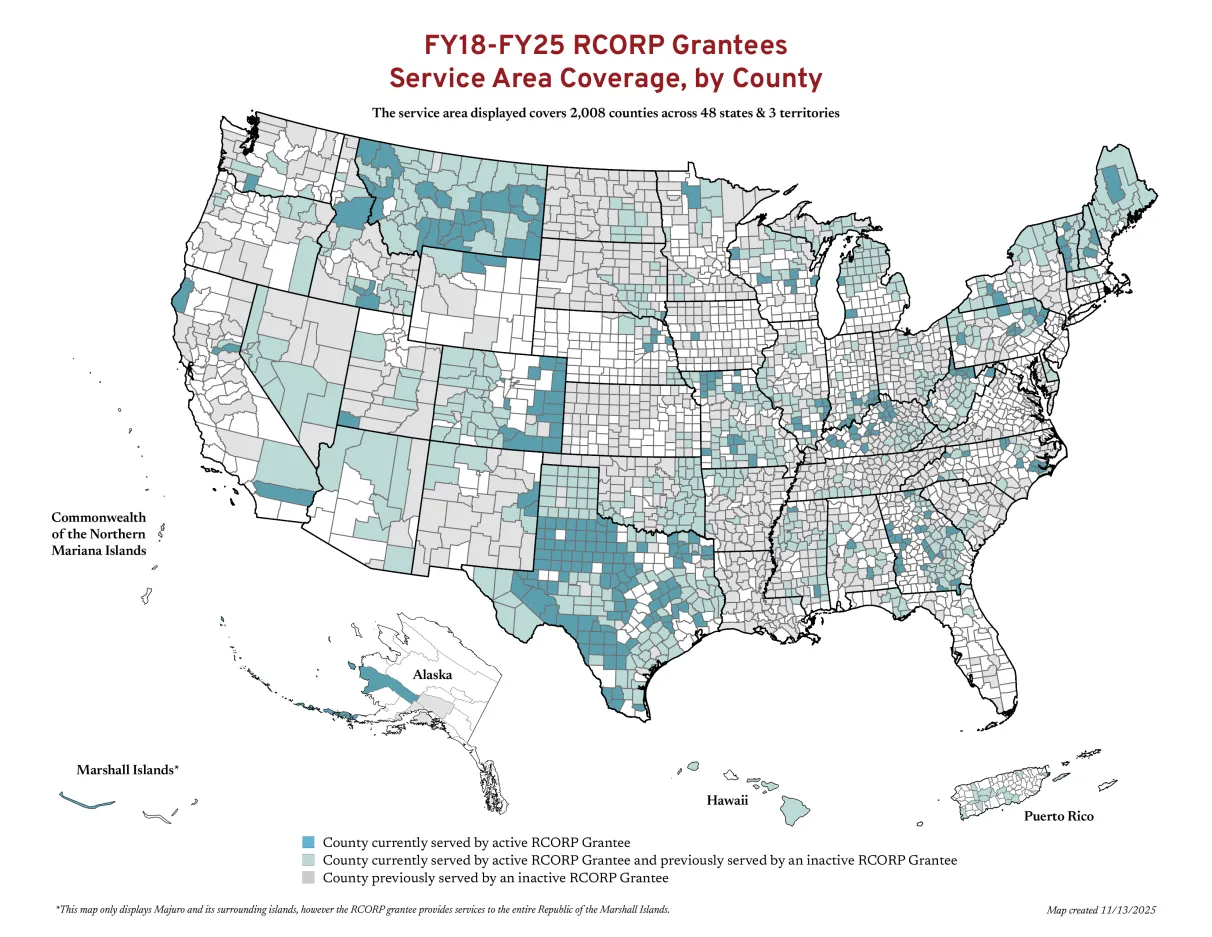All Cohorts Map

The nation is in the midst of an unprecedented opioid epidemic. According to data from the Centers for Disease Control and Prevention, 88,546 people in the United States died from a drug overdose between August 2023 – August 2024. Although this is down from a high point of 111,451 between August 2022 – August 2023, the United States continues to lose far too many friends and family members to overdose. Rural states continue to have alarmingly high rates of overdose-related deaths.
Common challenges in U.S. rural communities include:
- Poverty
- Inadequate health care and social services
- Limited broadband access and transportation
- Increasing difficulty attracting and retaining a health care workforce
In 2018, the Health Resources and Services Administration (HRSA) launched the Rural Communities Opioid Response Program (RCORP). Its purpose is to provide technical assistance (TA) to strengthen rural organizations’ capacity to develop multi-sector consortia that can plan, implement, and sustain programs that improve access to and quality of behavioral health care services, including substance use disorder (SUD)/opioid use disorder (OUD) services, in rural areas. Since then, RCORP has come to represent the largest concentrated rural investment in HRSA’s history.
The purpose of RCORP-Behavioral Health Care TA (RCORP-BHCTA) is to:
- Provide TA to RCORP grantees to support their efforts to implement and sustain behavioral health and SUD prevention, treatment, and recovery services
- Identify and/or develop, promote, and maintain tools and resources
- Develop and enhance meaningful partnerships
- Identify and strengthen rural communities’ capacity
The RCORP-TA portal supports these purposes by providing grantees access to a repository of resources and tools, peer grantees, and platform to request TA.
HRSA’s Role in Addressing the Opioid Crisis
HRSA is addressing the opioid epidemic by:
- Expanding access to behavioral health services through health centers and other primary care settings
- Using telehealth to treat OUD
- Connecting partners to opioid treatment-related resources
- Sharing best practices and regional approaches
- Increasing OUD training in primary care
- Informing policy and future investments
- Addressing opioid-related poisonings and overdoses
HRSA’s RCORP includes the following cooperative agreements:
- RCORP-TA: supports RCORP grantees in their efforts to increase access to behavioral health services, as well as to SUD/OUD prevention, treatment, and recovery services, in rural communities.
- RCORP-Rapid Response: analyzes behavioral health datasets to find targeted solutions to emerging threats to the health of rural communities.
- RCORP-Evaluation: evaluates the impact of RCORP and develops evaluation tools and resources for use in rural communities and to inform future rural health initiatives.
- RCORP-Rural Centers of Excellence on SUDs: supports the identification, translation, dissemination, and implementation of evidence-based programs and best practices related to the treatment for and prevention of SUD within rural communities. Their focus is on the current opioid crisis and on developing methods to address future SUD epidemics.
- Rural Behavioral Health Workforce Centers – Northern Border Region: supports communities by training health workers and community members to help people with behavioral health disorders.

